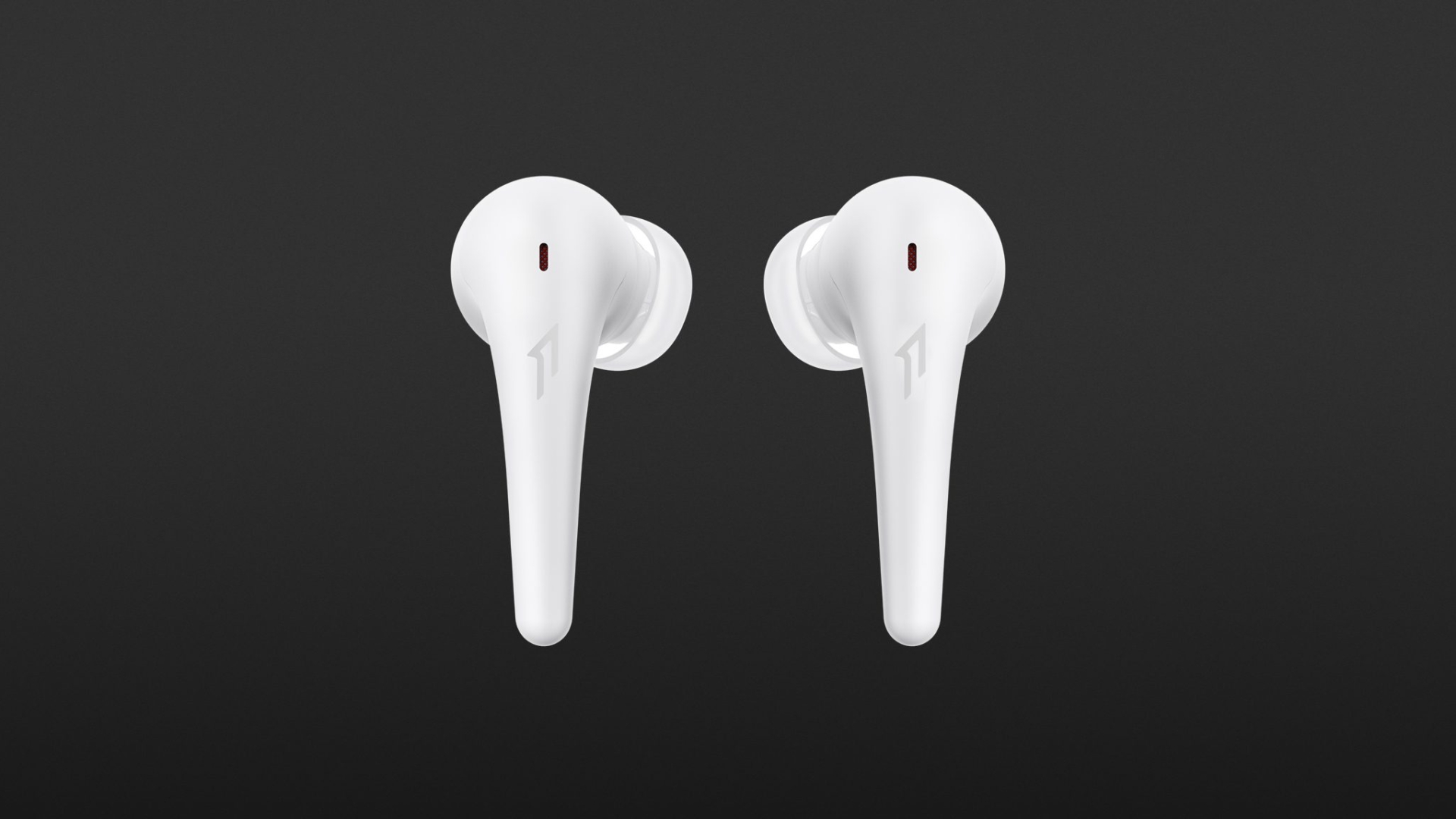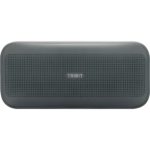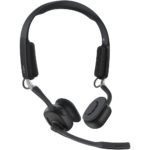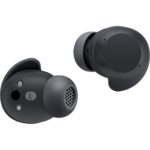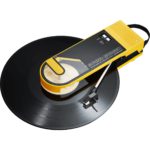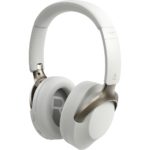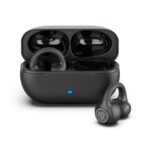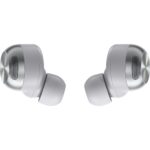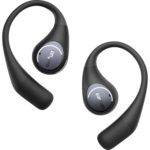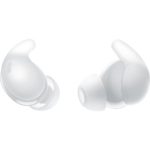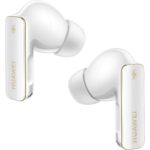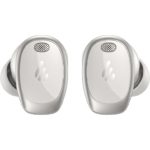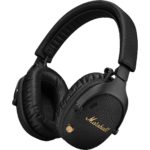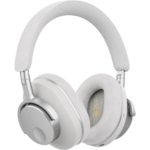The 1More Aero are affordable EarBuds that hold their own for everyday use thanks to their hassle-free handling and generous features. The focus is on ease of use and effective noise cancelling. In terms of sound, however, the system should not be approached with high expectations. While the functionality is excellent, the sound quality of the Aero is somewhere between the 1More ComfoBuds Pro (review) and the in-ear model 1More Evo (review).
- effective noise cancelling
- powerful app
- Bass emphasis, somewhat dull in the highs
The 1More Aero excel with convincing noise cancelling, really good features and an attractive price. These EarBuds are aimed primarily at daily commuting, office and leisure use. The sound quality is acceptable but not aimed at listeners with high demands.
The tireless developers at 1More have created portable headphones that are characterised by lavish features and attractive prices. This also applies to the “Aero” model, which is made of feather-light plastic and available in satin white or black. The charging case (also made of plastic) comes with a USB-C connection and the ability to be charged inductively. The effective noise cancelling is remarkable for the price of just over one hundred euros
The 1More Aero in practice
EarBuds differ conceptually from in-ear designs in that they are less sealed and positioned lower in the ear. This is the case with the 1More Aero, which comes in a half-in-ear design and is a mixture of earbuds and in-ears. It can be placed in the ear very quickly and sits comfortably thanks to its light weight, good fit and adjustment to your individual ear size via four silicone fitting pieces. However, the fit is not bombproof, which makes these IPX5-certified headphones less suitable for active sporting activities.
1More cite a playing time of five to seven hours, depending on the noise cancelling. The charging case makes it 20 to 28 hours, which means that even long journeys can be easily covered. The charging time for the EarBuds and the charging case is one to two hours.
Pairing was quick and established a stable wireless connection with our test device (iPhone 8) that covered several rooms. Multipoint connections can also be used but are still in the beta stage for the time being.
The free iOS and Android app offers access to firmware updates (as of 1.07) and fairly comprehensive functionality. Here, you can configure touch functions: Single clicks are omitted to avoid operating errors, but double and triple clicks can be freely defined on each side. In addition, a long touch switches between the ANC modes and the transparency mode. Usefully, there is also access to a smartphone’s voice assistant and handling telephone calls.
The 1More Aero offers sound control, which is divided into a pre-set EQ, a ten-band configurable custom EQ with memory locations and an adjustable loudness function. Users also benefit from an automatic function that switches to pause mode when you remove an earphone and resumes playback when required.
Another function is integrated motion tracking. This is where the stereo panorama follows the movement of the head as if you were turning in front of a loudspeaker. For music enjoyment, this is rather counterproductive unless the music creates an interactive movement. However, this function can be quite interesting for VR applications.
The “Smart Loudness” function adopts an interesting approach. It is well known that our hearing is subject to level-dependent frequency response changes (Fletcher-Munson curves). Thus, at lower volumes, mid-frequencies are preferable – an effect that diminishes with increasing levels. For decades, the loudness button on the hi-fi amplifier has accordingly provided bass and treble boost. In the 1More app, this effect can now be adjusted. In fact, the bass and treble can be adjusted automatically depending on the playback volume. In practice, the amount of bass increases too much at higher Smart Loudness values, so it sounds unbalanced at low listening volumes. So if you prefer to listen quietly, you should not set this function too high.
Quality of the 1More Aero’s noise cancelling
The noise cancelling (ANC) is surprisingly efficient and, according to the manufacturer, reduces background noise by up to 42 dB in the range between 40 and 4,000 Hz. You can switch between different intensities/modes via the app. There is strong and weak suppression of background noise, a dedicated mode for the prevention of wind noise, which does its job quite efficiently, as well as an adaptive mode, the intensity of which adapts dynamically to the environment. The degree of noise reduction is remarkable. Thus, background noise in the bass range is effectively cut out, and even percussive noises, such as keyboard taps and conversations in the background, are significantly softened.
Transparency mode is also included. Ambient noises are fed into the headphones via the external microphones so that they are clearly audible. Accordingly, you can interact with the environment without taking the EarBuds out of your ear.
Sound
1More probably see the Aero as a multifunctional accessory for daily use rather than an audio specialist. As EarBuds, the Aero’s design offers less depth and sealing in the ear canal than in-ear designs, which primarily impacts bass response. However, the device we tested can hardly be perceived as an audiophile model due to the low price. 1More does not explicitly list any high-resolution audio codecs and uses standard SBC and higher-quality AAC. This was confirmed by our test with the DAP Shanling M3X (test).
But in daily use for mobile music consumption, telephone calls and video conferences, they do a decent job. Noise cancelling creates an improved listening space, which significantly increases the focus on music playback in noisy everyday life environments and increases listening pleasure.
The sound reproduction was powerful at higher volumes and was somewhat emphasised in the bass, something that can be an advantage for mobile use. The bass tended to be full and audible even in the lower registers. However, different pitches and decay times (Kraftwerk “The Robots Remaster 2009”), as well as dynamic gradations (Holly Cole Trio “I Can See Clearly Now”), remained clear.
Nevertheless, in productions with a high bass content, the midrange struggled a little, but voices and instruments of all kinds were reproduced coherently. Even rock productions with distorted guitars (AC/DC “Fire Your Guns”) sounded coherent and powerful, but sometimes they lacked bite because the 1More Aero lacks airiness in the upper frequencies. The sound was rounded off at the top and too dull. Unwanted harshness did not occur, but the richness of detail suffered and had an impact on the stereo panorama and the “percussiveness” of the playback.
As in the bass range, this effect can be adjusted, but not completely compensated, via the EQ. In general, the EQ, with its ten (unlabelled) frequency bands, offered sensitive control of the spectrum and, with a potential range of ±3 dB, acted a pleasantly unobtrusive effect.
In contrast to more expensive headphones, the stereo stage was somewhat narrow and less spectacular (Yello “Pan Blue”), while I rated the spatial depth and dynamic reproduction as rather below average for the price class/design. The price class clearly has to be kept in mind here.
In conclusion, the call quality during phone calls was decent due to six built-in microphones and an AI-controlled suppression of ambient noise, earning the 1More Aero a recommendation for appropriate applications.
Technical specifications
- Ear couplingEarbuds / Half In-Ear
- Typeclosed
- Transducer principledynamic
- Impedance32 ohms
- Weight without cable4,9 each, case 45,2 g
What's in the box
- 4 pairs of silicone ear tips (S, M, L, XL)
- USB-C charging cable
- charging case
Special features
- in Schwarz oder Weiß erhältlich
- BT codecs: SBC, AAC
- BT version: 5.2




